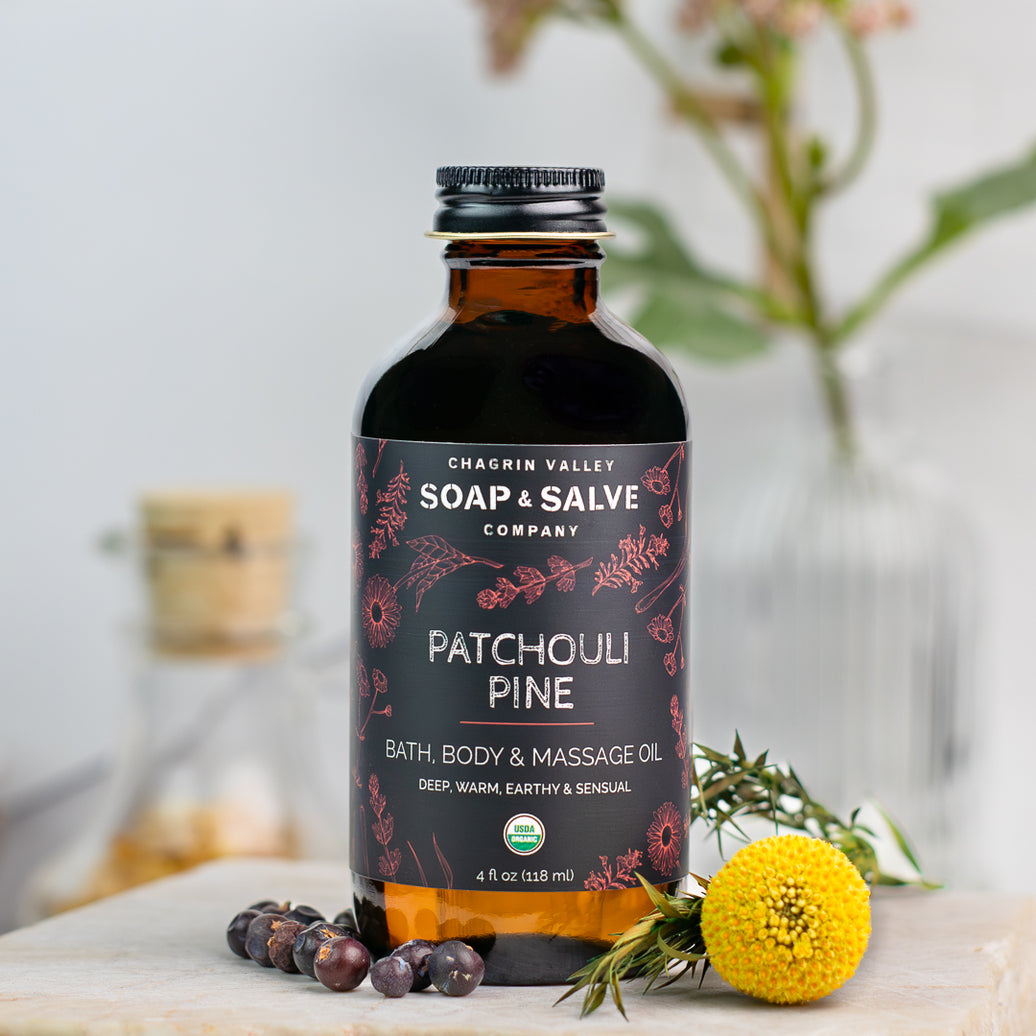
Bath & Body Oil: Patchouli Pine
- Out Of Stock
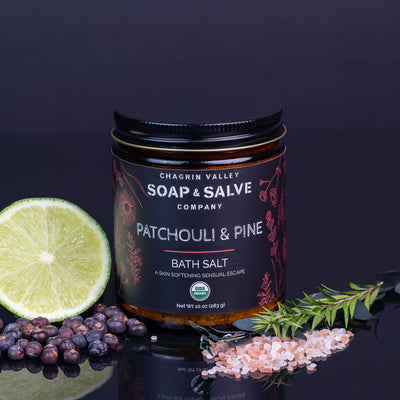
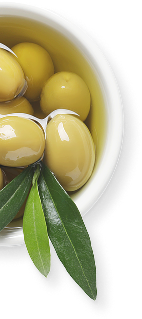
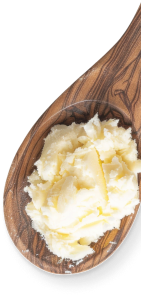
Turn your tub into a skin softening, soothing, sensual escape. Allow your senses to savor the alluring essential oil blend while your body soaks in the soothing and relaxing effects of a warm bath.






We call our Organic Patchouli Pine Essential Oil blend (formerly called Romantic Spirit) our "Love and Comfort" scent!
Our aromatic Romantic Bath Salt turns your tub into a skin softening, soothing, sensual escape. Natural salt baths help cleanse pores, balance skin oils, and ease muscular pain and joint stiffness. A soothing soak leaves skin feeling soft and smooth You will feel warm and relaxed!
Mineral-rich salts and aromatherapy enhance the natural healing and soothing effects of a warm bath, help release stress, relax muscles and stimulate circulation. The enchanting essential oil blend provides a rich, warm experience that renews the spirit, revitalizes the body, and stimulates the senses to bring about a sense of peace and well-being.
Experience the natural therapeutic effect of this soothing and alluring bath salt blend.
While salt baths have many beneficial effects, people who are under a doctor's care for any condition should consult their health care provider before taking salt baths.
For more Bath Salt Recipes read our blog: Chagrin Valley Natural Bath Salts & Recipes
Use Salts in your Shower!
Place 1/4 to 1/3 cup of salts into a muslin bag. Hang the bag from the shower head for a warm saltwater shower. Our scented bath salts will create a bit of scented steam.
Place 1/4 to 1/3 cup of salts into a muslin bag. Use the bag as a saltwater washcloth with soap or a salt water rinse.
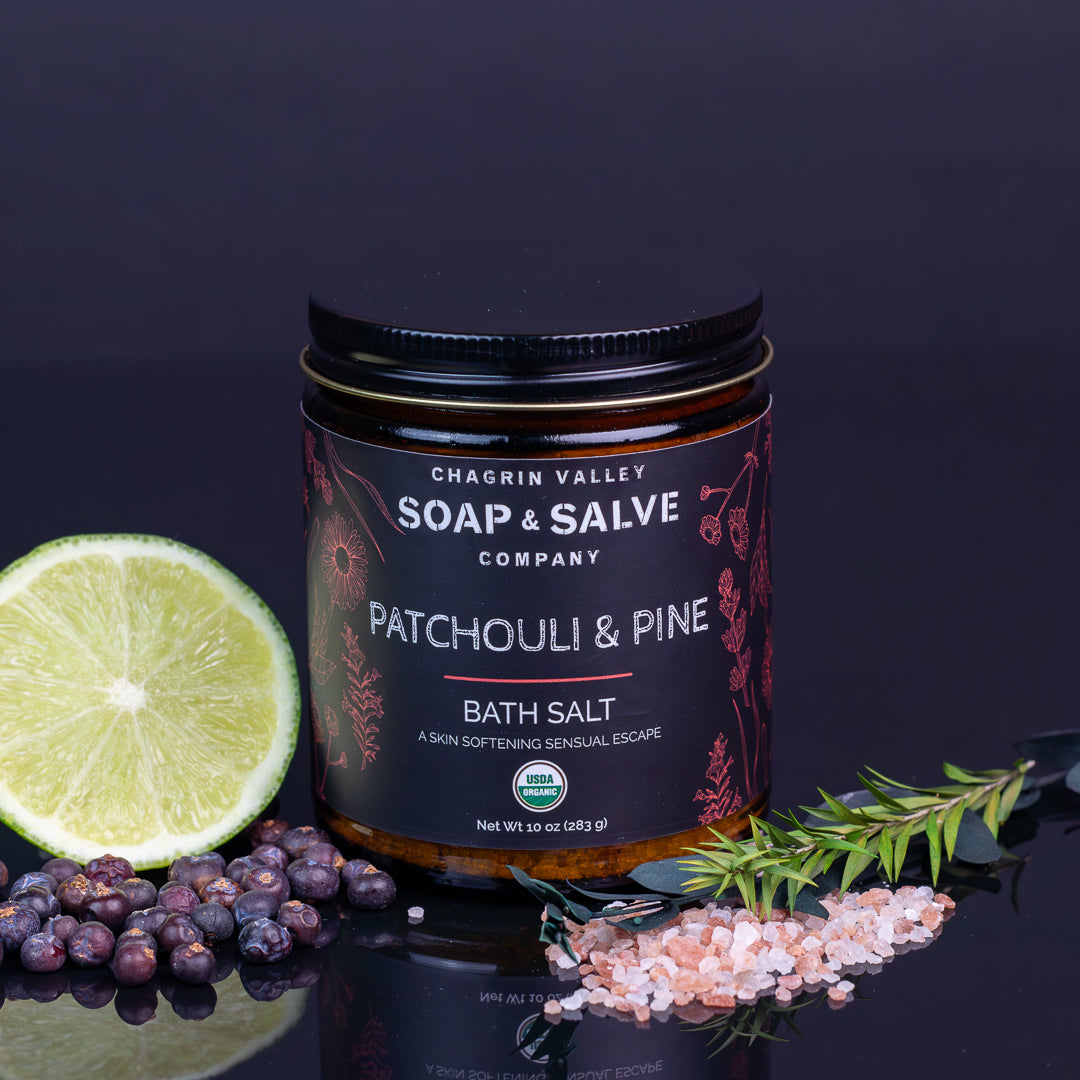
The goal is simple: to Harness the Power & Simplicity of Nature® to cleanse, soothe, heal, and protect your skin and hair!
Our unique formulas rely on moisturizing oils and butters, healing botanicals, and pure essential oils. We choose every ingredient with one end-result in mind….the BEST possible natural skin care for YOU!
 Organic Patchouli Essential Oil
Organic Patchouli Essential Oil
 Organic Ylang Ylang Essential Oil
Organic Ylang Ylang Essential Oil
 Organic Clary Sage Essential Oil
Organic Clary Sage Essential Oil
Our salts are tested for purity, naturally harvested, untreated and organic compliant.

The most important consideration in any business is its customers. Today's world of misleading claims, false advertising, and simple deception, often leaves consumers trying to discover the truth about personal products and their ingredients.
Some of my favorite products are made with ingredients that just do not exist as certified organic. Why? At this time there are no standards created for ingredients specifically used in the personal care product industry. Organic certification of personal care products is based on the organic food standards set by the National Organic Program of the USDA.
But since we are a certified organic company, we are required to submit documentation that even our "non-organic ingredients" were produced without the use of toxic pesticides, genetically modified organisms (GMOs), sewage sludge, or irradiation.

Why Did We Become a Certified Organic Company?
What Do All of the Organic Labels Mean?
Have you ever enjoyed the scent of a fragrant flower or herb? The fragrance comes from potent, aromatic compounds called essential oils found in the flowers, stems, seeds, bark, roots, fruits, and other parts of plants. It often requires several pounds of a plant to produce a single bottle of essential oil.
Essential oils not only give plants their unique scents but also help lure plant pollinators and protect plants from insects and other predators.
The chemical composition of essential oils may provide valuable psychological and physical aromatherapeutic benefits for some people.
It is important to note that to be a true essential oil, the oil must be isolated from the plant material by physical means only. Essential oils are NEVER extracted using solvents.
Although synthetic fragrances or "nature identical" oils are available at a much lower cost, only natural plant essential oils will provide any aromatherapeutic benefits.

What Are Essential Oils (Much more detail)
How Essential Oils Are Extracted
Why We Use Only Real Plant Essential Oils?
If you are pregnant or under a doctor's care for any medical condition, please consult your healthcare provider before using essential oils.
Pregnancy & Children: We do not provide information on the safety of essential oils during Pregnancy or for use in Children because the available information is very ambiguous and often contradictory. If you’re interested in using essential oils during pregnancy or with young children please do your own research and consult your doctor, midwife, or health care professional before use.
The "certified organic" labeling has been developed by the USDA and refers to organic claims and labeling on food and personal care products in the United States. The USDA has very strict guidelines for the percentage of organic ingredients necessary to receive organic certification. Other countries have their own certification procedures, requirements, and standards. Labeling criteria and allowable ingredients differ from those in the US.
 The USDA Organic Logo Label can be used on products that meet the standards of the first two tiers of the organic labeling system in which 95 - 100% of the ingredients are certified organic.
The USDA Organic Logo Label can be used on products that meet the standards of the first two tiers of the organic labeling system in which 95 - 100% of the ingredients are certified organic.
Most of our non-soap products fall into this category and display the USDA logo!
 The Certified Organic by OEFFA label is used in our company for two reasons . . .
The Certified Organic by OEFFA label is used in our company for two reasons . . .
Soaps and Shampoos: These products contain at least 8% of the sodium hydroxide due to the process of soapmaking. Our "organic" soap is about 87% to 92% organic, but the USDA standard states that a product must be made of 95-100% organic ingredients in order to bear the USDA Certified Organic seal shown above. We are also not allowed to use the words "organic soap" on the label.
Wildharvested Ingredients: When using any agricultural ingredient (any ingredient that has a biological origin) that is not certified organic the same labeling rules we use for soap apply.
The USDA rules for proper labeling state that the products may display the certifying agent's logo but not the USDA organic logo. Our USDA certifying agency is OEFFA (The Ohio Ecological Food and Farm Association). Their logo is displayed on our "organic" soaps and shampoos.
Why do some soap companies use the word "organic" on their labels--even though it is against the rules? Click Here to Read More about Rules for Organic Labeling of Soap!
We sometimes use an unofficial symbol for products made with "natural" ingredients that do not meet the criteria for either label above. You may see this type of symbol on products, like the Dead Sea Black Clay, Bamboo Charcoal, and Loofah Pumice Foot Soaps and our Mud & Clay and Rosemary Mint Charcoal Shampoo Bars.
Organic certification is based on organic farming and agriculture standards. As a result, the list of allowable non-agricultural ingredients (like clay, salt, mud etc) is based on raw materials used in agriculture or food production. Unfortunately, ingredients like some Clays, Pumice, Dead Sea Mud and Bamboo Charcoal are not used in farming or food production and thus do not appear on the list.
Although it may seem long, this is really a very brief description. For more detailed information please read, "What Do All Of The Organic Labels Mean?"

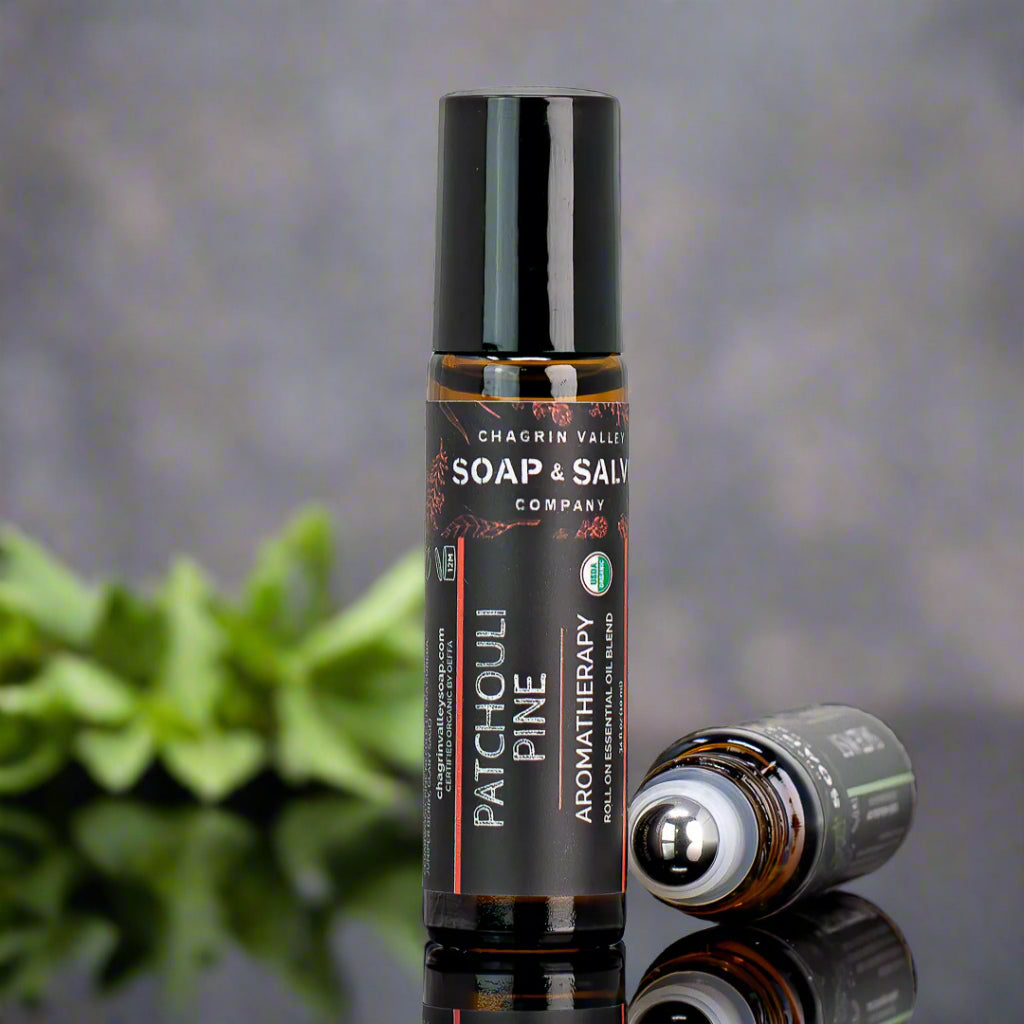
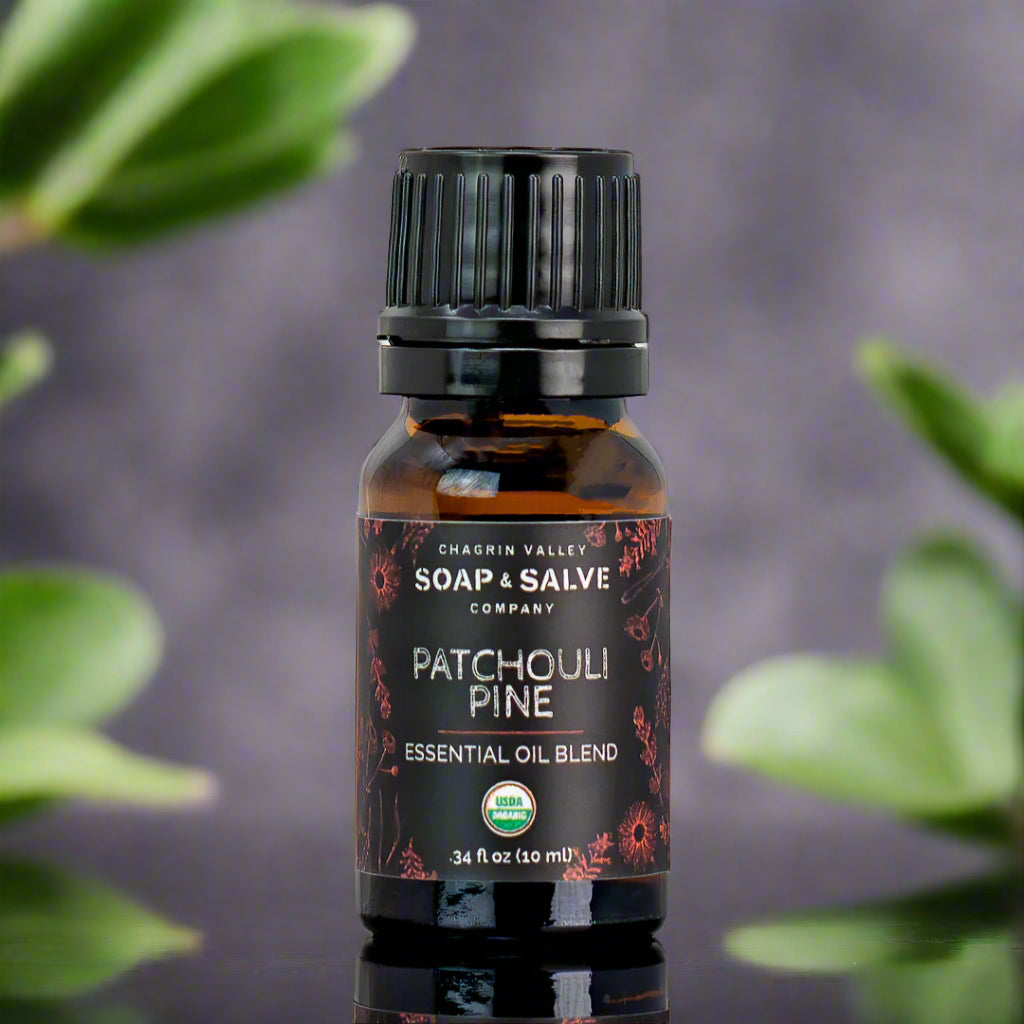
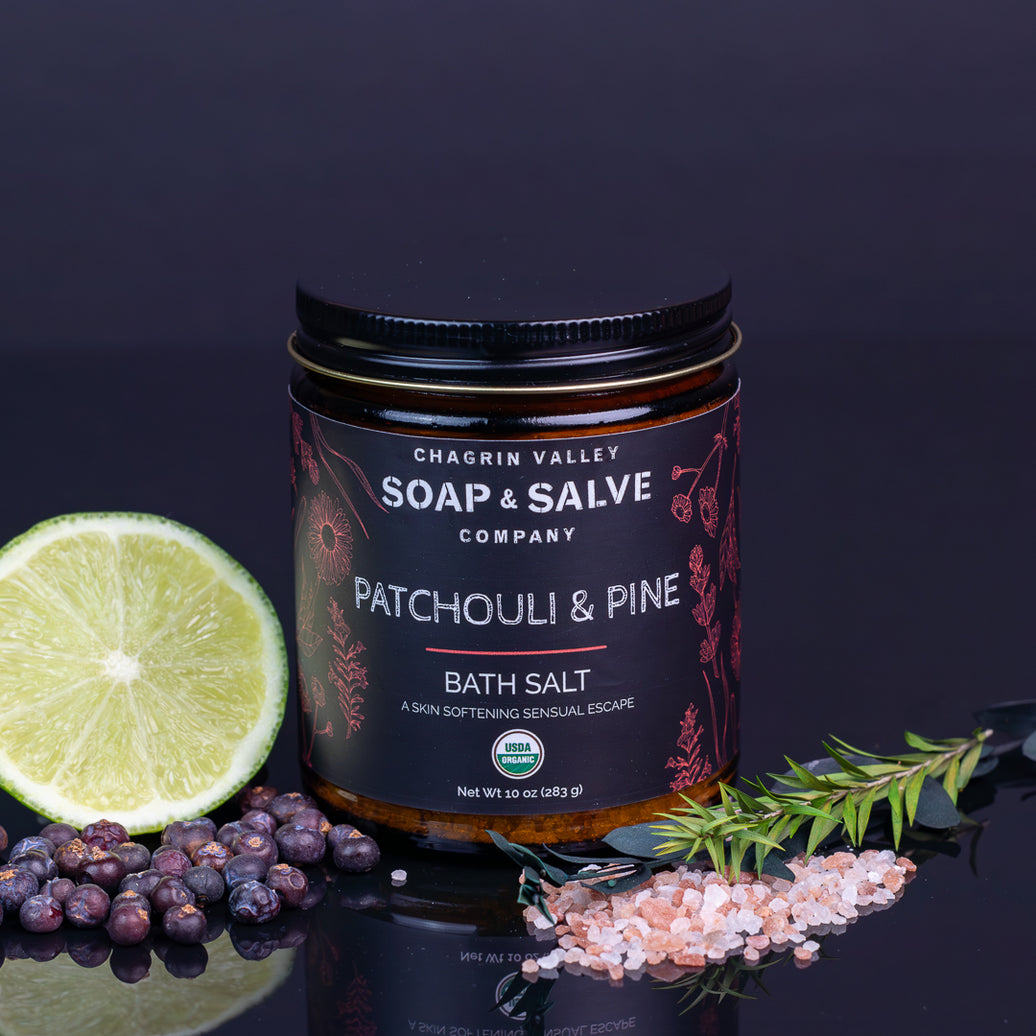
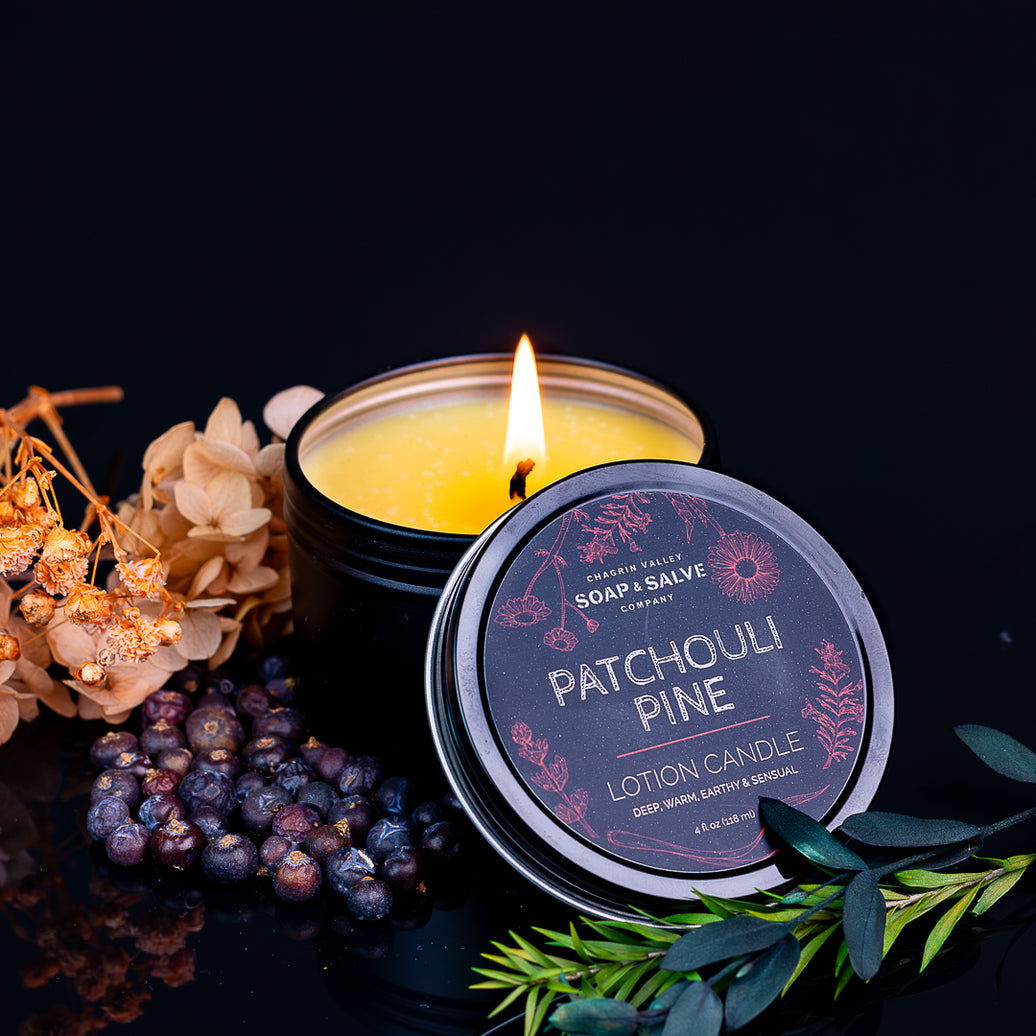
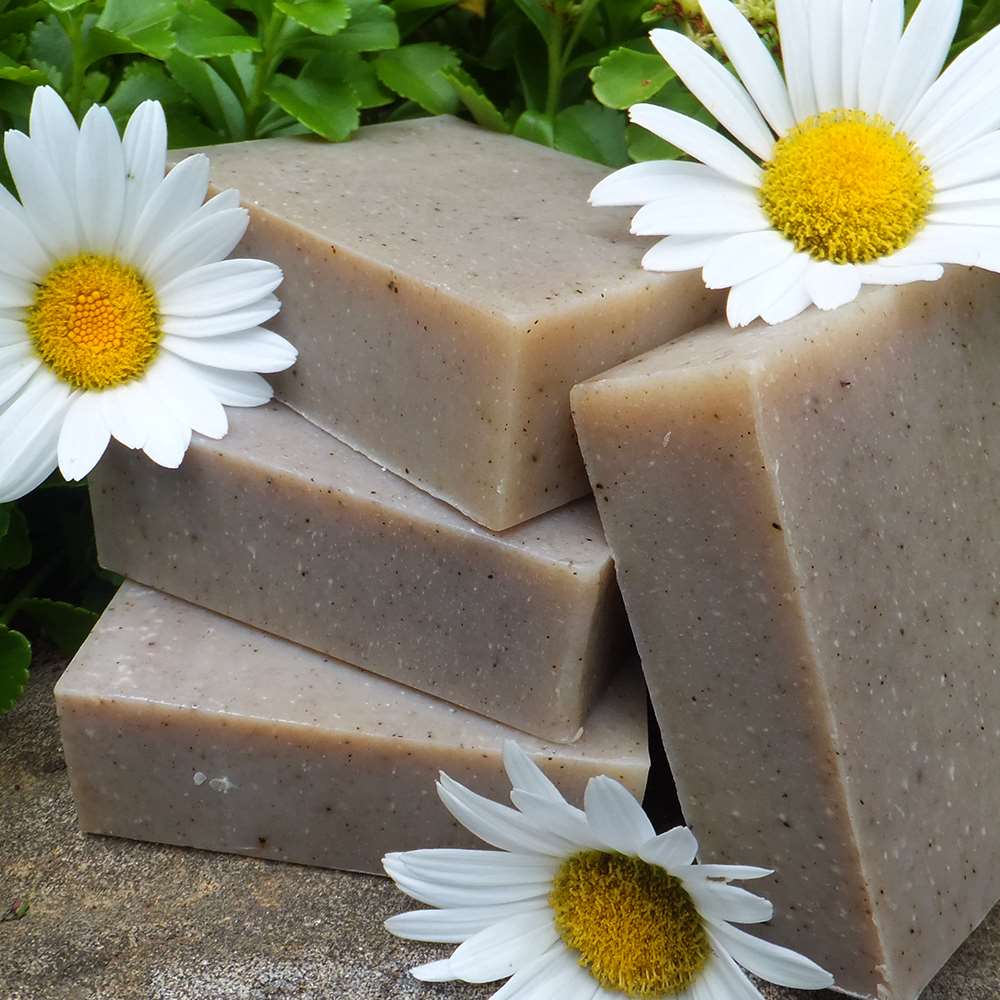
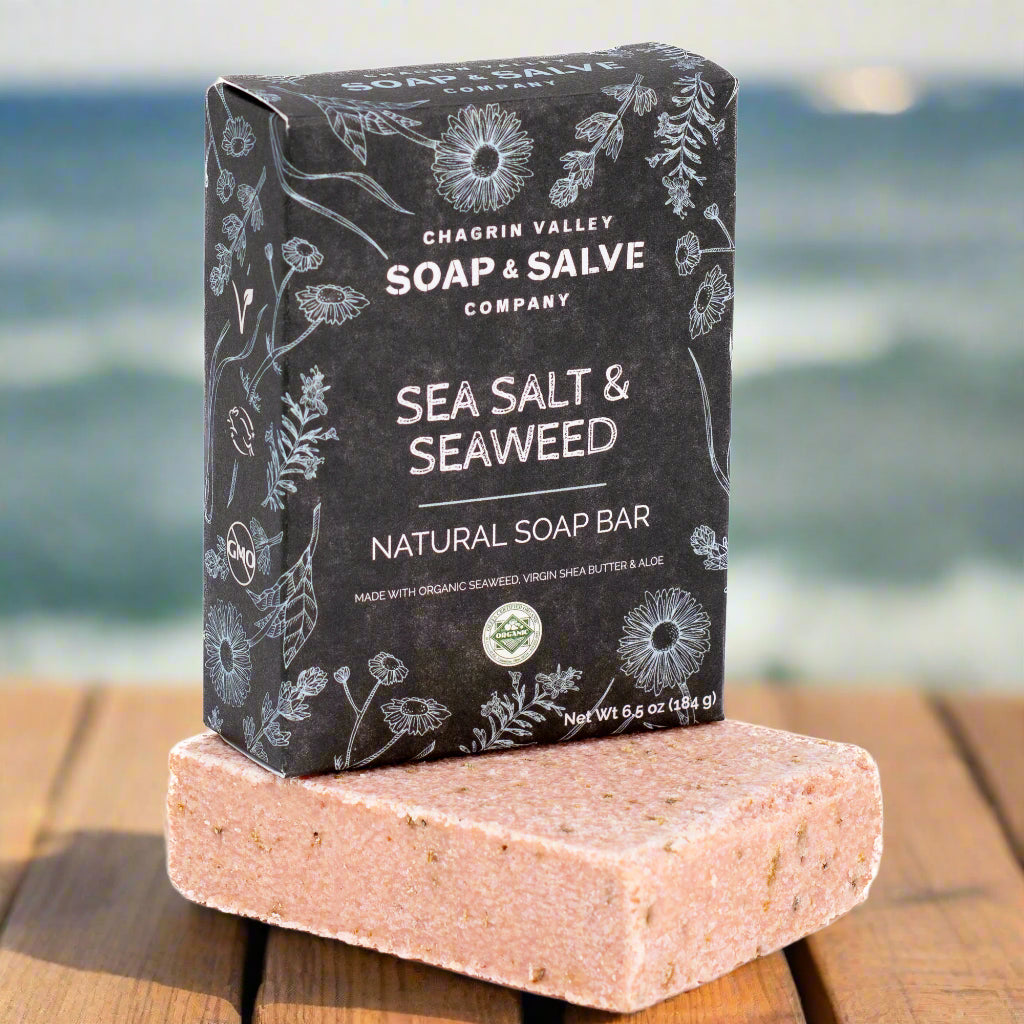
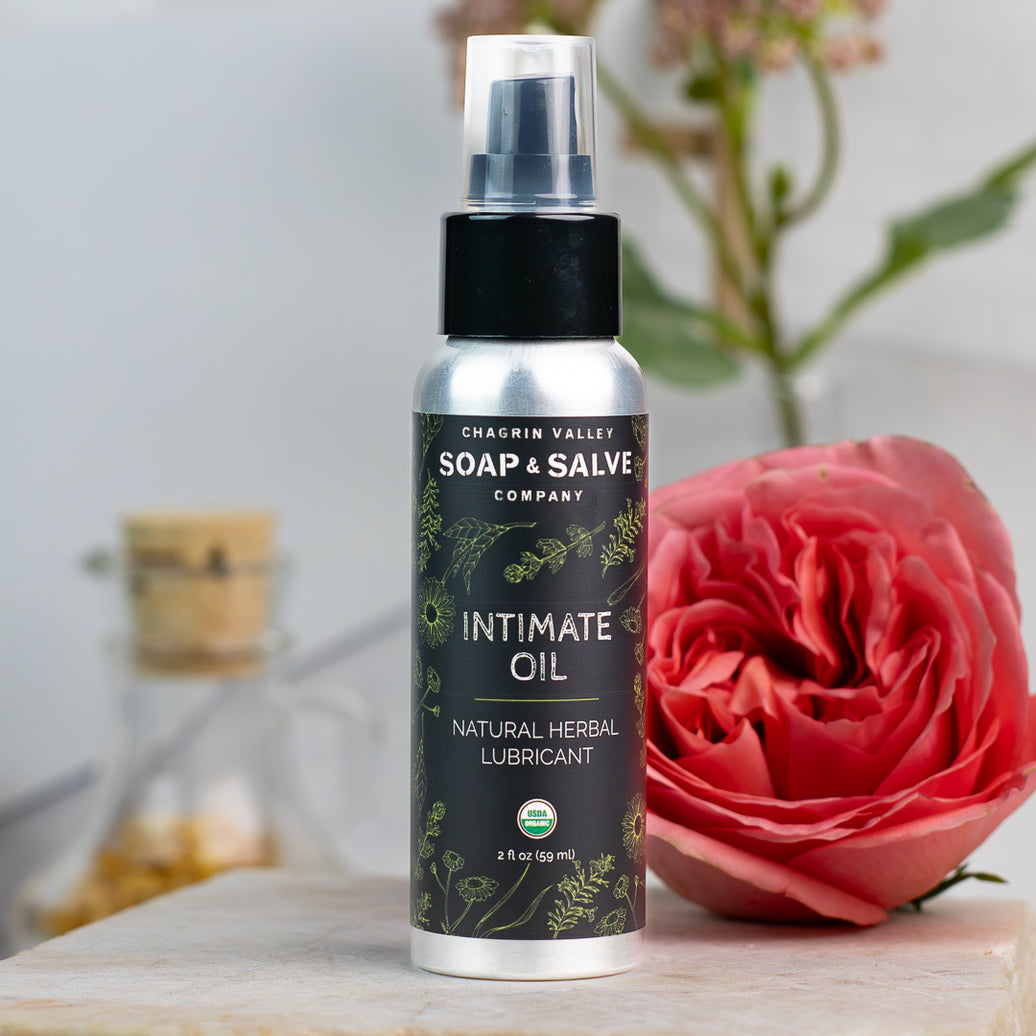
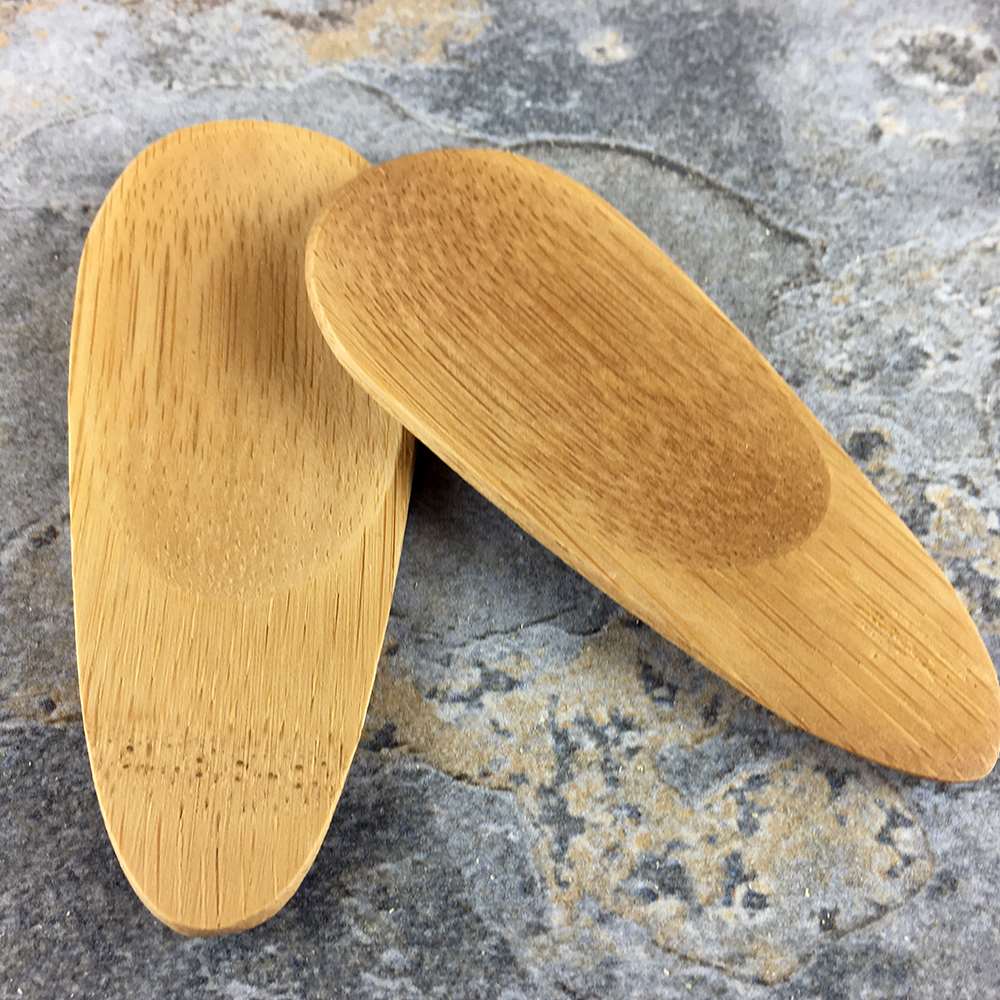
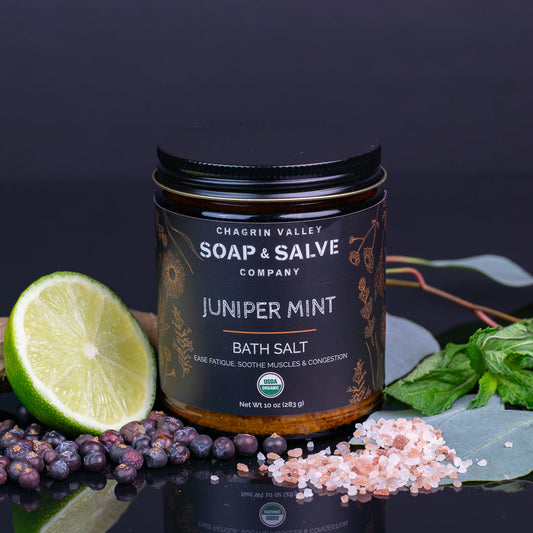
Looking for a way to relieve stress, ease achy muscles, or soothe irritated skin? A medley of soothing salts enhances the natural healing and soothing effects of a warm bath.
Read Post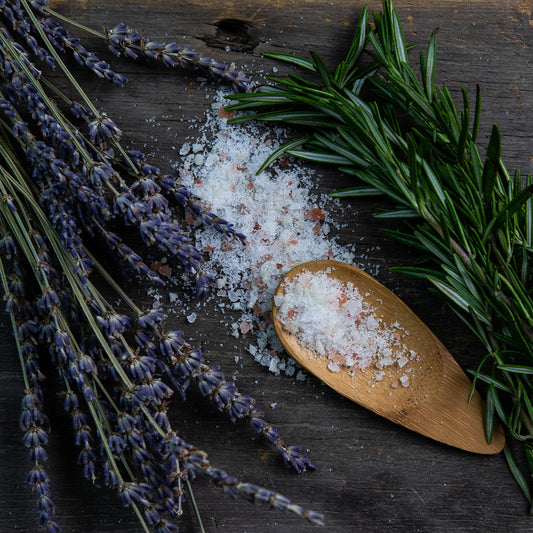
Aromatherapy is the use of aromatic plant essences like essential oils to support wellbeing and help maintain the balance of the mind, body, and spirit.
Read Post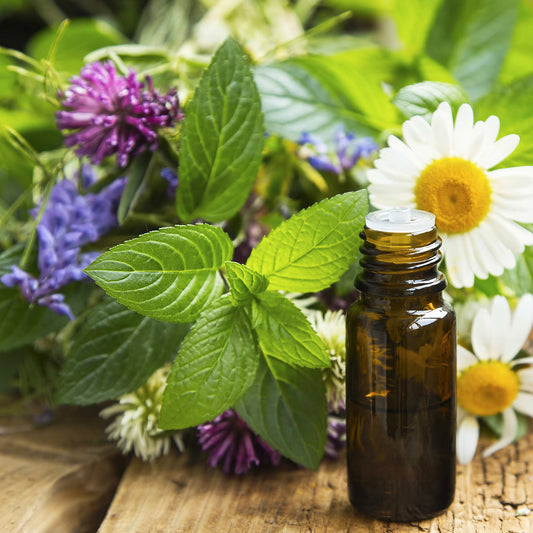
The synergistic composition of essential oils cannot be recreated in a laboratory. Fragrance oils do not offer the natural therapeutic advantages of true essential oils.
Read Post